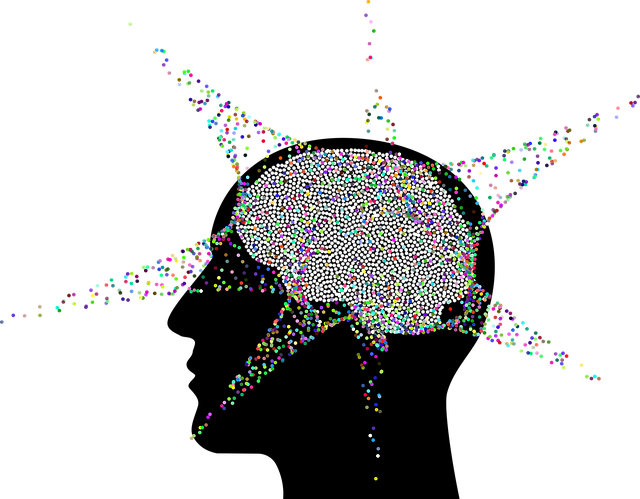Public awareness campaigns by Parker Anger Management Therapy (PAMT) leverage social media, community events, and partnerships to educate societies about mental health issues, focusing on stress management and anger as a healthy emotion. These campaigns aim to break stigma, provide de-escalation tools, and encourage self-care, leading to healthier relationships and wider resource utilization. PAMT assesses campaign success through KPIs like awareness and help-seeking behaviors, continuously improving strategies based on data to meet evolving community needs.
Public awareness campaigns play a pivotal role in shaping societal attitudes and behaviors, with far-reaching impacts on public health and safety. This article delves into the essence of these initiatives, highlighting their critical role in addressing pressing issues like anger management. We explore key strategies for developing compelling and effective campaigns, particularly focusing on Parker Anger Management Therapy techniques. Additionally, we discuss evaluation methods and continuous improvement approaches to ensure maximum impact.
- Understanding Public Awareness Campaigns: Their Role and Impact
- Developing Effective Parker Anger Management Therapy Campaigns
- Measuring Success: Evaluation and Continuous Improvement Strategies
Understanding Public Awareness Campaigns: Their Role and Impact

Public awareness campaigns play a pivotal role in educating and influencing societal behaviors. They serve as powerful tools to shed light on various issues, from promoting healthy lifestyles to advocating for mental health initiatives. These campaigns have the potential to reach vast audiences, disseminating critical information that can drive positive change. By utilizing engaging strategies, such as social media, community events, and partnerships with influential figures, organizations like Parker Anger Management Therapy can effectively communicate complex topics like stress management.
In the context of stress-related issues, these campaigns aim to raise awareness about different coping mechanisms and available resources. The Stress Management Workshops Organization, for instance, conducts awareness drives that highlight effective stress reduction methods. Similarly, mental health professionals must also consider risk assessments as part of their public outreach strategies (Risk Assessment for Mental Health Professionals). Such initiatives not only promote self-care but also encourage individuals to seek help when needed, ultimately fostering a healthier and more resilient community.
Developing Effective Parker Anger Management Therapy Campaigns

Developing effective public awareness campaigns for Parker Anger Management Therapy (PAMT) requires a strategic approach to educate and engage communities. PAMT goes beyond traditional anger management techniques by incorporating evidence-based practices tailored to diverse populations. A key aspect is presenting anger as a manageable emotion rather than a destructive force, fostering mental health awareness and encouraging individuals to seek help. Campaigns should employ compelling storytelling to humanize the experience of anger, break down stigma, and promote empathy building strategies.
Integrating crisis intervention guidance into these campaigns can equip individuals with immediate tools to de-escalate intense emotions. By combining educational content with interactive elements, PAMT awareness initiatives can empower people to recognize triggers, respond thoughtfully, and build healthier relationships. This holistic approach ensures that the campaign resonates with audiences, ultimately leading to wider acceptance and utilization of available resources for anger management support.
Measuring Success: Evaluation and Continuous Improvement Strategies

Evaluating the success of public awareness campaigns is crucial for achieving long-term positive impacts on mental health and overall well-being. Measuring success goes beyond initial reach and goes into the depth of behavior change and sustained impact. Organizations like Parker Anger Management Therapy often employ robust evaluation strategies to assess campaign effectiveness. This involves tracking key performance indicators (KPIs), such as increased awareness about specific mental health topics, enhanced help-seeking behaviors, and improved mood management skills among targeted audiences.
Continuous improvement is a key component of successful campaigns. By analyzing the data gathered through evaluations, organizations can identify areas that require adjustment or further emphasis. For instance, if Mental Wellness Journaling Exercises guidance proves particularly popular, future campaigns might prioritize its integration. This iterative process ensures that awareness campaigns remain relevant and impactful, aligning with evolving mental health needs and trends within communities they serve.
Public awareness campaigns, such as those focusing on Parker Anger Management Therapy, are powerful tools for educating communities and driving positive change. By understanding their role, developing effective strategies, and measuring success through evaluation, these campaigns can significantly impact individual lives and societal well-being. Continuous improvement is key to ensuring these initiatives remain relevant and impactful in a constantly evolving world.













